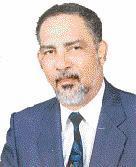
Howard Hamilton WE CONTINUE our journey on the road of Jamaican Thoroughbred Racing looking at the changing face of the sport of kings.
The '70s could be described as the watershed of our industry. As far back as 1975 when Racing Promotions Ltd. (RPL) was formed it was recognised that a new racing facility was needed. The stand had by then become totally inadequate and unsuitable. The stable area was described as a disgrace to the racing industry and no improvements could be made without a break in racing.
It was against this background that RPL started their management of the industry. The first chairman was G.C.H. Miller - a nominee of the Jockey Club and a steward. The board included such racing personalities as Charlie Browne - a nominee of the Thoroughbred Breeders' Association - Ren Gonzales from the Trainers' Association, Alex Hamilton, Bob Mayall and Joe Armond.
The popularity of racing never waned and each year there was an increase in the parimutuel turnover. The Racing Pools was introduced in 1978 and this proved to be a popular innovation. There was an increase in participants - owners, jockeys, trainers. Most of the new participants looked to racing as a source of income and the demands for increased purses was a perpetual cry. These demands led one writer to comment at the time:
"A racing owner may have come into the the sport for one of several reasons:
a) Perhaps he just loves horses and horse racing, and he would like to see his colours carried in a race - win or lose - cost it what it may.
b) Or perhaps he is a shrewd investor and wants to make a real 'killing' on the tote or with the bookmakers when the time comes that his horse has everything going for him.
c) Or maybe he expects to make a profit or at least break even after setting off all the expenses against the purse-money earned.
Profit
Those in the third category should pause and consider. They should not expect to make a profi they may hope to do so. Everyone has a weekend hobby for relaxation. Some enjoy shooting or fishing, others prefer going to night clubs or travelling.
They all know that these activities will cost money. If someone decides that his hobby is to own a racehorse, why should he expect that his chosen hobby will cost him nothing, and further, that the authorities should assure him of a profit?
The changing profile of participants encouraged in the '70s brought with it an environment which was difficult to accept. Gone were the days of 'pomp and glamour' and this turned off a number of the more affluent participants. The 'socialising' of racing was looked at as a major achievement and even today some still herald this change as a positive contribution to the racing scene.
A number of positives marked the beginning of the '80s - a jockey's training school was established, The Hall of Fame for Thoroughbred Racing in Jamaica was established, greater levels of discipline were being implemented by the Racing Commission, and the leadership in the industry was lucky to have Dennis Lalor at the Racing Commission.
There were many disqualifications resulting from positive dope tests and every effort was being made by the commission to move racing forward.
Notwithstanding all of these changes, there still remained the iniquitous position of an inadequate distribution of the turnover generated by the promoting company. Taxation was a perpetual problem and management was under constant pressure for non-payment. Most of the financing of the operations then was through mortgage financing The operation of the company deteriorated to the point where the bank put in a receiver in 1985.
Back in 1975 when a 'new deal' was announced with the formation of a not-for-profit, participatory promoting company, there were high hopes that, with the direct participation of all stakeholders in the decision-making process, racing would reverse the fortunes of previous years.
Ten years later, Racing Promotions Ltd. is an insolvent company owing debts in excess of $30 million and racing has suffered the indignity of having its promotion conducted by a receiver/manager.
What went wrong? The conclusion to this series will be the subject of our next article.

